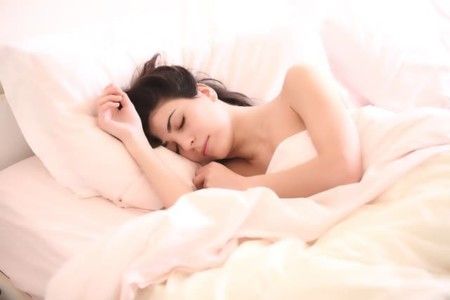Healthy fall asleep and sleep through the night – Fit for the day
Healthy sleeping in and through is enormously important, because who comes in the morning only yawning and completely exhausted from the springs, will hardly be able to achieve anything during the day. Unfortunately, sleep problems are not uncommon, as data from the German Federal Statistical Office show: around a quarter of all Germans suffer from sleep disorders, i.e. they have difficulty falling asleep, can’t sleep through the night or wake up much too early.
This is not only energy-sapping, but can also have a very negative effect on your health in the long term. Fortunately, there are some tricks that can help you fall asleep faster and get the rest you need at night.
Tips for falling asleep – how to get some rest
One of the most important factors for healthy sleep is certainly routine – you should preferably always go to bed at the same time and get up at the same time in the morning. This allows your body to develop a true wake-sleep rhythm and you will notice that you always get tired and wake up at the same times – without an alarm clock.
It is important that you remain true to this rhythm even on weekends, because otherwise your body cannot get used to sleeping times. Do not take a midday nap, as this is generally not necessary for adults and only makes it more difficult to fall asleep in the evening.
Also avoid stimulating drinks such as coffee, cola or energy drinks before going to bed. Alcohol, cigarettes and (fatty) food are also taboo before resting at night. In general, you should avoid all these stimulants at least three to four hours before sleep.
But don’t go to bed hungry either, because that makes it harder to fall asleep and often leads to restless sleep.
Sports and other physical activities – especially outdoors – can promote a healthy sleep pattern. On the one hand, the body exhausts itself, so that the nightly recovery phase is really necessary, and on the other hand, natural light ensures that the body adjusts better to a suitable day-night rhythm.
Don’t schedule your workouts right before bedtime, because after exercise, your body is ready for peak performance and not for sleep at all.
If you have problems falling asleep, it is better to rely on relaxation rituals such as the classic full bath or even a warm foot bath. In addition, do not go to bed until you are really tired, otherwise you may find yourself tossing and turning and unable to get any rest at all.
The same applies if you are tired, but the events of the day still occupy your mind. In this case, it is better to sit on the couch for a while, review the events of the day in your mind’s eye and find some closure. Only then does it go to bed.
There are, of course, many more tips that can help you fall asleep. For example, try not to sleep longer than seven to eight hours in general – and don’t look at the clock if sleep doesn’t want to come one day. This usually only makes you feel insecure, causes excitement because “the night is almost over”, and makes it even more difficult to fall asleep.
Falling asleep and staying asleep healthily in the right environment
If you suffer from insomnia, if you can’t fall asleep or stay asleep, it doesn’t always have to be related to you personally – maybe it’s also due to your bedroom. If it is too bright or too warm, it will be difficult to sleep. Ideally, the bedroom should be largely darkened and have a room temperature between 16 and 19 degrees Celsius.
Fresh air is also conducive to healthy sleep, as are muted colors. Flashy decorative objects, bright colors on the walls or even a running TV make it very difficult to calm down and fall asleep.
Plants in general have no place in the bedroom, because they consume oxygen during the night, which can have a negative effect on the air in the room and thus on the quality of your sleep. Only bow hemp and aloe vera are okay, because these plants still release oxygen at night.
What consequences can sleep disturbances have?
Whether you are an early riser or a morning person, too little sleep has a negative impact on performance. Unrested people are less concentrated, mistakes or even accidents happen more often. However, this is not the only unpleasant effect of too little sleep – especially if the sleep problems persist for a long time.
Often, the lack of rest at night leads to high blood pressure, and depression can also be the result, which often exacerbates sleep problems. A rather unusual consequence is obesity – researchers have found out in a study that too little sleep causes the feeling of satiety to set in later, so that people usually eat too much and thus quickly have a few excess pounds on their ribs.
With the tips from this article, however, you should be able to sleep restfully at night – if not, a visit to the doctor makes sense.
